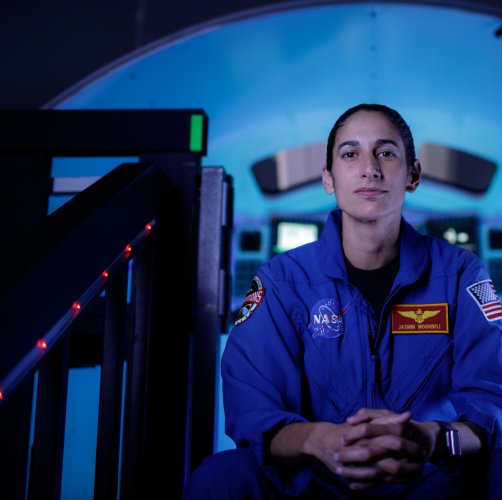1 of 3 | A conceptual drawing shows Masten Space Systems' Masten XL-1 lunar lander on the moon's surface. Image courtesy of Masten Space Systems
ORLANDO, Fla., Dec. 3 (UPI) -- Four companies will collect moon rocks and dust on the lunar surface for NASA by 2023 in preparation for a human mission the following year, the space agency announced Thursday.
The missions would be the first time a private company has collected samples from another planetary body, and the first time ownership of an object would be transferred beyond Earth orbit, according to NASA.
The companies are Lunar Outpost, based near Denver; ispace Japan of Tokyo; Luxembourg-based ispace Europe and Masten Space Systems, of Mojave, Calif. All four are planning to fly equipment to the moon on missions already planned.
The sample missions are intended only to provide a "proof of concept" to show NASA how a private company would collect samples. The missions also will test a legal framework for turning over ownership of such samples on the moon, said Phil McAlister, the agency's director of commercial spaceflight development.
NASA may never retrieve the samples once they are collected on the surface, McAlister said.
"It is to be determined how we will collect that material," he said. "At this point, we don't have plans for how we will take physical possession."
NASA simply wanted to set a precedent for such collection of samples under the international Outer Space Treaty, which allows nations to extract resources on objects in space, but doesn't allow claiming ownership of territory, said Mike Gold, NASA's acting associate administrator for international and interagency relations.
"It's very important that we resolve any legal or regulatory questions in advance, because we never want policy or regulation to slow down or hinder incredible innovations and developments that we're seeing," Gold said.
Gold said he didn't have examples of such questions, but added that the process might reveal possible legal issues.
Lunar Outpost, founded in 2017, is an aerospace company that focuses on technology to enable an extended presence on the lunar surface. The company plans to get to the moon on the Blue Moon lander, a contender for NASA's human lander program planned by Jeff Bezos' Blue Origin space firm, McAlister said.
Lunar Outpost, which has other contracts with NASA, requested the sample collection contract for just $1, according to NASA.
The contracts for ispace Japan, and its subsidiary ispace Europe, are for $5,000 each. They plan to ride on Japan's planned Hakuto-R lunar lander.
Masten will get to the moon on its own Masten XL-1 lander, which is part of NASA's Commercial Lunar Payload Services program, for an additional $15,000 contract.
The ispace Japan mission will seek to land on Lacus Somniorum, a plain on the moon's northeastern near side. The other three will target sites near the lunar South Pole, where NASA plans its future human landings.
The companies are charged with collecting a small amount -- from about 2 ounces to a little over a pound -- of rocky and dusty lunar soil, or regolith. They then would provide NASA with images of the collected material, along with data that identifies the location.
After NASA receives the information, the company would legally sign over sample ownership to the space agency.
NASA's Artemis program would land astronauts on the moon by 2024, as outlined by the Trump administration. President-elect Joe Biden has not stated space goals.
Jasmin Moghbeli
Moghbeli poses for a portrait in the Systems Engineering Simulator for the International Space Station and advanced spaceflight programs at the Johnson Space Center on July 9, 2019. She will train for the moon mission. Photo by Bill Ingalls/NASA
















